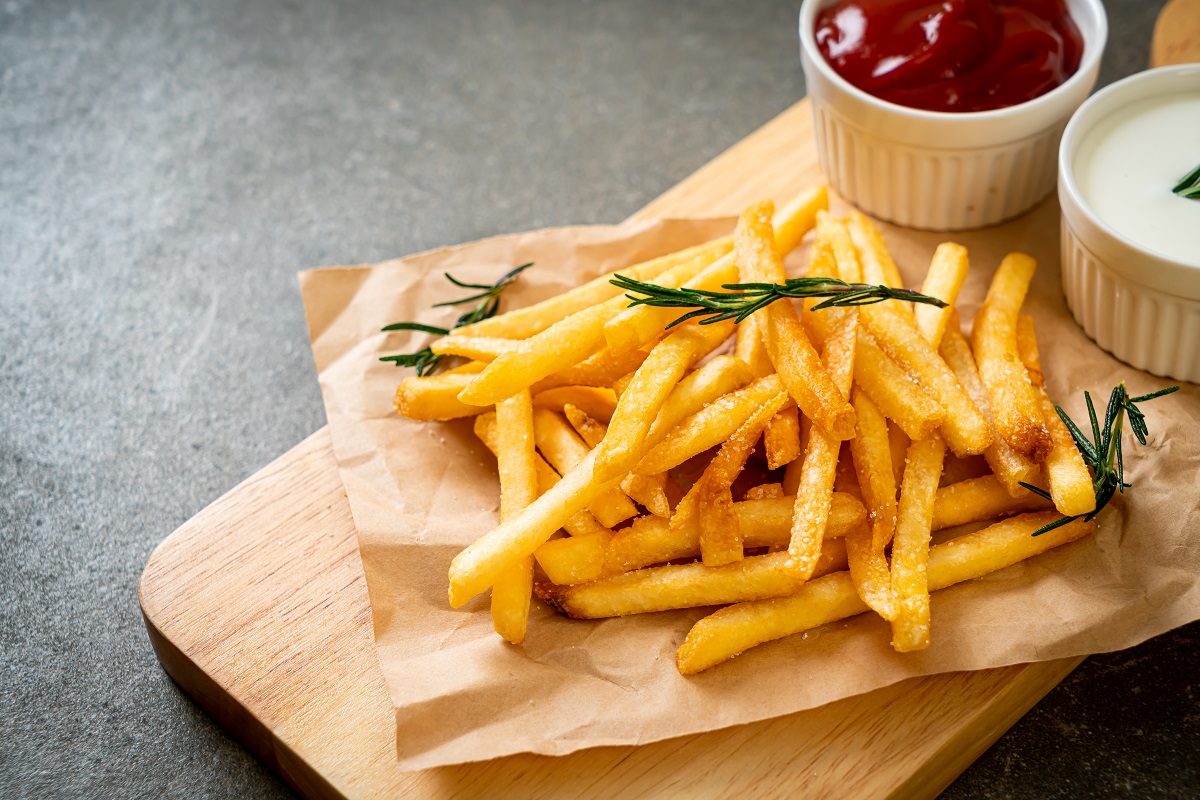Oil is, and always has been, a restaurant kitchen staple. It’s used in nearly every dish as an ingredient, a cooking medium, or both.
However, not all oil is the same. Two types in particular—cooking oil and vegetable oil—may seem identical at first, but they have some key differences.
Understanding Cooking Oils: Canola vs Vegetable Oil
Starting with the basics: What do “cooking oil” and “vegetable oil” mean?
Cooking oil is essentially synonymous with canola oil. Although there are many different types of bulk cooking oils, canola is one of the most common in restaurant kitchens.. As such, this guide truly details vegetable oil vs canola oil.
So, let’s talk about canola oil. Pressed from the seeds of the canola or rapeseed plant, canola oil is a thin, yellowish liquid at room temperature.
And what about vegetable oil? Technically speaking, vegetable oil is any oil extracted from a vegetable’s seeds or fruits. Under that definition, all of the following kitchen staples are vegetable oils:
- Olive oil
- Soybean oil
- Grapeseed oil
- Avocado oil
- Palm oil
However, in common usage, “vegetable oil” is a specific product; you’ll often see those words on labels at the grocery store. When something is labeled as vegetable oil, it’s typically a mix of several golden oils. Soybean oil is the most common ingredient, but you might also find palm oil or even canola oil inside.

Comparing the Two Oils
If some vegetable oil has canola oil as an ingredient, you might be wondering, “Is canola oil the same as vegetable oil?”
The answer is no. Although they’re similar in many ways, canola and vegetable oil are not the same.
Ingredients
Let’s start with the biggest difference between these two oils: their contents.
With canola oil, you know exactly what’s in it. It’s oil from the canola plant, and that’s it.
With vegetable oils, you’ll never know the exact composition of the blend. Sure, you can look at the ingredients label to understand what’s in the bottle. But you won’t know the percentage of each ingredient.
Flavor
With that said, it may not always matter which oil you use. That’s certainly the case when it comes to flavor.
Both canola and vegetable oil are known for their mild, almost transparent tastes. Have a teaspoon of either one by itself and the only flavor you’ll perceive is a vegetal “oily” one.
As such, these oils are more of a medium than a flavor enhancer. Use them in a vinaigrette or a marinade, and the flavors of the other ingredients will shine through.
Uses
Thanks to that neutral taste, canola and vegetable oil are incredibly versatile; emulsions are only the start.
Since they don’t transfer flavors to food, canola and vegetable oils are ideal for any recipe that calls for cooking in oil.
These oils are ideal for low- or high-heat cooking due to their high smoke points. An oil’s smoke point is the temperature at which it will start to smoke and burn, imparting those flavors into your food.
Here’s where we find another slight difference: Canola oil’s smoke point is 468°F, while soybean oil (the most common ingredient in vegetable oils) has a smoke point of 450°F.
Be sure to check with your supplier for the exact smoke point of your vegetable oil, as compositions vary.
Nutritional Content and Health Considerations
What about the nutritional side of things? Is canola oil healthy? Is vegetable oil healthy? Is soybean oil healthy? Are any oils healthy, for that matter?
Although many seed oils and the foods they fry as problematic, it turns out that oil can be a healthy and important part of your diet:
- Canola oil – This oil is an excellent source of essential omega-3, omega-6, and omega-9 fats. It’s also been shown to have positive effects on heart disease, diabetes, and more. In general, canola oil is lower in saturated fat and higher in unsaturated fat. However, neither oil should contain high amounts of trans fat, as the FDA has taken regulatory steps to reduce trans fat in processed foods. Canola oil is also a great peanut oil substitute, for those who have allergies.
- Vegetable oil – Without knowing what blend you have, it’s hard to list the health benefits of vegetable oil. In general, vegetable oils have been shown to help prevent cardiovascular disease and may be anti-inflammatory, anti-cancer, and anti-obesity. In particular, soybean oil has been found to reduce the risk of coronary heart disease.
Which one is healthier? The experts seem to say canola oil, though both have their benefits.
If you’re looking for more information on the other types of cooking oils, such as olive oil, soybean oil, corn oil, avocado oil, sunflower oil, and sesame oil, check out our guide.
Whatever Oil You Choose, Manage It Well
In general, you can use cooking oil (canola) and vegetable oil interchangeably. Both are cost-effective, versatile, and neutral in flavor. Choosing the best fryer oil will come down to personal preference and what your customers are asking for.
Your most important responsibility as a restaurateur is to manage it as efficiently as possible. Restaurant Technologies can help. Our cooking oil management services help you receive, store, and dispose of oils in the most efficient and sustainable ways. Get in touch with us today to find out more.
Sources:
- Bon Appétit. The Best Oils for Cooking, Grilling, Baking, and Beyond. https://www.bonappetit.com/test-kitchen/ingredients/article/types-of-cooking-oil
- Canola Council of Canada. Canola Oil. https://www.canolacouncil.org/about-canola/oil
- Masterclass. Cooking Oils and Smoke Points: What to Know and How to Choose the Right Cooking Oil. https://www.masterclass.com/articles/cooking-oils-and-smoke-points-what-to-know-and-how-to-choose
- Canola Council of Canada. Canola Oil. https://www.canolacouncil.org/about-canola/oil
- National Center for Biotechnology Information. The Chemical Composition and Health-Promoting Benefits of Vegetable Oils-A Review. https://pubmed.ncbi.nlm.nih.gov/37687222
- Restaurant Technologies. Is Soybean Oil Bad For Your Heart? https://www.rti-inc.com/blog/heart-health-and-soybean-oil/
- Food Network. Canola vs. Vegetable Oil: What’s the Difference? https://www.foodnetwork.com/how-to/packages/food-network-essentials/canola-vs-vegetable-oil






